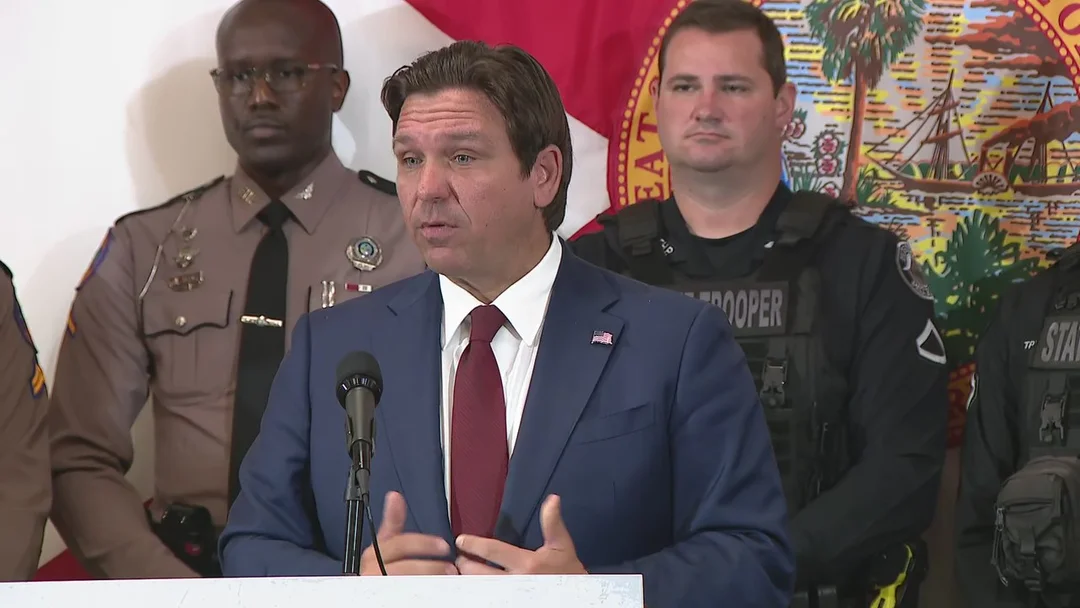
Florida’s Immigration Crackdown: Is This the Future of U.S. Enforcement?
In a move that's sparking intense debate across the nation, Florida Governor Ron DeSantis and state officials are championing aggressive immigration enforcement tactics. This development, centered on mass deportations and high-profile operations, raises crucial questions about the future of U.S. border policies and their broader implications for civil rights and national unity.
At the heart of the discussion is Operation Tidal Wave, a recent initiative that detained over 1,000 migrants in just five days. Florida officials, including DeSantis, have positioned this as a blueprint for nationwide action. Speaking at a press conference in Tampa on May 12, Larry Keefe, executive director of the State Board of Immigration Enforcement, described the operation as the 'new normal,' signaling a shift toward more intensive enforcement. Keefe showcased a 37-page document, dubbed the 'Florida blueprint,' which details strategies for mass deportation and is expected to influence federal approaches within the next 60 days.

Dave Kerner, director of the Florida Department of Highway Safety and Motor Vehicles, added that 1,800 Florida Highway Patrol troopers are already equipped with federal authority under 287(g) agreements to detain, investigate, and deport individuals. This collaboration with federal agencies underscores Florida's proactive role, with Kerner noting that troopers have assisted in apprehending over 1,020 immigrants. Governor DeSantis, addressing the crowd, urged other states to follow suit, stating, 'There may be a lot of somersaults along the way, but I imagine we're going to land basically where we need to land as a state.' His comments reflect a growing momentum for stricter enforcement, echoing President Donald Trump's Project Homecoming proclamation, which calls for expanding deportation forces by 20,000 officers.
Comparatively, this approach marks a significant escalation from previous efforts. While Operation Tidal Wave targeted high-immigrant areas in cities like Miami-Dade and Tampa, critics argue it could lead to overreach and infringe on human rights. Proponents, however, praise it as a necessary response to illegal immigration, potentially setting a precedent for other states. The operation's success, as claimed by officials, highlights the intersection of state and federal powers, but it also invites scrutiny over its long-term effects on communities and the economy.
This Florida-led initiative not only amplifies the state's influence in national politics but also sparks broader conversations about immigration reform. As federal plans align more closely with these tactics, the balance between security and compassion remains a key concern.
In summary, Florida's bold immigration strategies could redefine U.S. enforcement practices, offering a model—or a warning—for the rest of the country. What are your thoughts on this evolving landscape? We invite you to share your perspectives in the comments and engage with fellow readers on this critical issue.